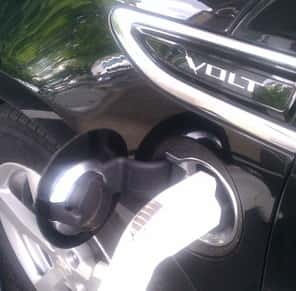 The National Highway Traffic Safety Administration (NHTSA) has initiated a formal safety-defect investigation to examine fire risks associated with the Chevy Volt electric vehicle (EV), putting EV enthusiasts and fleet operators alike on alert to a potential speed bump in the technology's evolution.
The National Highway Traffic Safety Administration (NHTSA) has initiated a formal safety-defect investigation to examine fire risks associated with the Chevy Volt electric vehicle (EV), putting EV enthusiasts and fleet operators alike on alert to a potential speed bump in the technology's evolution.
Mass-media outlets such as Forbes rang alarm bells, with headlines like ‘GM Moves Quickly To Put Out Chevy Volt Firestorm.’ In a recent article, Scientific American asked, ‘Could Chevy Volt Lithium-Ion Battery Fires Burn Out Interest in EVs and Hybrids?’
This kind of attention has the potential to be damaging to the growth of the budding EV market, which is already up against a number of challenges.
The drama began this spring. The NHTSA crashed a Volt during side-collision testing, damaging the vehicle's battery and rupturing the coolant line. A fire involving the test vehicle occurred more than three weeks after it was crashed, and the NHTSA initially concluded that the damage to the vehicle's lithium-ion battery during the test led to the fire.
The NHTSA conducted tests on the Volt last week to intentionally damage the battery compartment. Following one test, the battery pack was rotated after it was impacted and began to ‘smoke and emit sparks shortly after rotation to 180 degrees,’ the agency says. About a week following another test, a battery pack that was tested and was being monitored caught fire. A third test did not result in a fire.
The organization has made it clear that it has not been alerted about actual roadway crashes resulting in battery-related fires in Volts or other vehicles powered by lithium-ion batteries. However, the NHTSA explains it is ‘concerned that damage to the Volt's batteries as part of three tests that are explicitly designed to replicate real-world crash scenarios have resulted in fire.’
The group says that, to date, testing on electric vehicles other than the Volt have raised no safety concerns. And although EV penetration into government, corporate and other fleets has been light, experts' experience with the technology has not raised red flags.
Kenneth Bernard, fleet manager for the City of Roanoke, Va., and chairman of NAFA's Fuels & Technology Committee, tells NGT News that the EVs under his supervision – a sedan, dump truck and electric scooters for traffic enforcement – have caused no safety issues. And despite the recent Volt brouhaha, he remains confident that EVs are safe in their own right, as well as relative to diesel- or gasoline-fueled vehicles.
Bernard has no Volts in his fleet, so he could not comment on the model specifically. However, he did express concern that the fires will be disruptive to EVs' image and market penetration.
‘It's certainly not going to be helpful, in the short term,’ he says.
Chris Hoffman, manager of transportation services for Oklahoma State University and president of the National Conference of State Fleet Administrators (NCSFA), acknowledges that the NHTSA's investigation has increased NCSFA members' concerns about the fire risk associated with the Volt.
‘However, fleet managers remain confident that the car is safe,’ he notes, adding that state-fleet managers are ‘very interested’ in EVs and are satisfied with the technology's performance thus far.
The NHTSA notes that it is premature to comment about whether a recall of Volts or specific vehicle parts is possible. The group did say that if it discovers an ‘unreasonable risk to safety,’ it will ‘notify consumers and ensure that GM communicates with current vehicle owners.’
For its part, GM has pledged to provide free loaners to Volt owners who are worried about the car's safety.
Photo by NGT News






